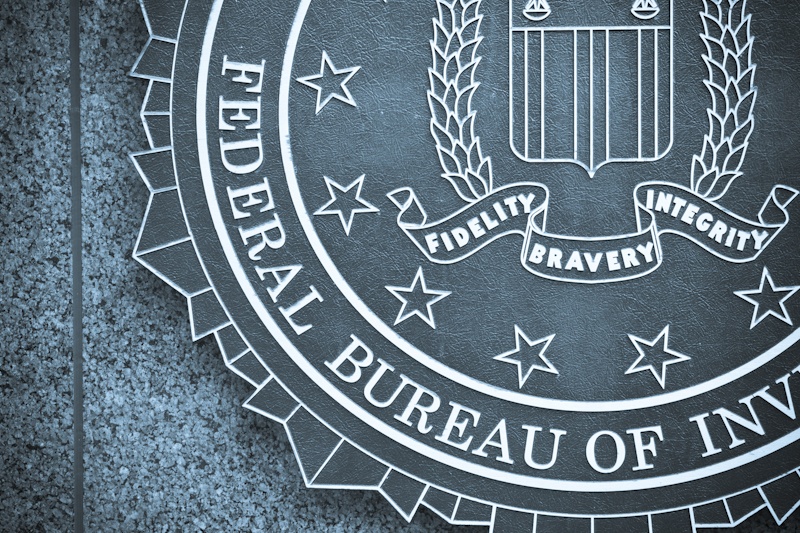House Passes Section 702 Reauthorization
The House narrowly rejected a warrant requirement in a bill that reauthorizes FISA Section 702 for two years.

Published by The Lawfare Institute
in Cooperation With

The House of Representatives voted on Friday to reauthorize Section 702 of the Foreign Intelligence Surveillance Act (FISA) ahead of a looming expiration deadline of April 19. The Reforming Intelligence and Securing America Act (H.R. 7888) would limit U.S. person queries under Section 702 and reform the application process for regular FISA court orders, even as the House also passed several amendments that may ultimately expand how the government uses FISA. In a dramatic tie vote, lawmakers rejected an amendment that would have added a warrant requirement for U.S. person queries conducted under Section 702, marking a major defeat for privacy advocates, civil libertarians, and far-right politicians. Though H.R. 7888 may not represent the Biden administration’s ideal version of reauthorization, the administration “strongly supports” the bill without the warrant requirement, a stance that may bolster its favorable consideration in the Democratic-controlled Senate. That said, the upper chamber also has cross-cutting ideological divisions on surveillance reform. It remains unclear whether senators will pass H.R. 7888 or another bill before Section 702 lapses later this week.
Intra-Republican disagreements—not for the first time—threatened the bill’s journey to a House floor vote last week. H.R. 7888 reflected the House Permanent Select Committee on Intelligence’s (HPSCI’s) favored approach to reauthorizing Section 702. That is, H.R. 7888 did not carry over the sweeping limitations, including a warrant requirement, from the House Judiciary Committee’s competing proposal. Instead, House leaders proposed considering some of those measures as separate amendments to H.R. 7888, a framework that left many lawmakers dissatisfied. Proponents of the Judiciary Committee’s bill also fumed about the decision to carve out provisions that limited law enforcement and the intelligence community’s ability to acquire commercial data. Privacy advocates had long sought these data protections—previously packaged as the Fourth Amendment Is Not For Sale Act—and they perceived a standalone floor vote had significantly lower odds of success.
Tensions boiled over on Wednesday after former President Donald Trump called on lawmakers to “kill” FISA. Nineteen House Republicans then helped sink an effort to open debate on the bill. While this was not the first time in this congress that a group of GOP members voted down what’s known as a “special rule” setting the terms for debate on a particular piece or pieces of legislation, doing so is an anomaly in the contemporary era; voting with one’s party leadership on rule votes has long been thought to be a key responsibility of rank-and-file members.
To avert an additional defeat last week, House Speaker Mike Johnson made a key concession: H.R. 7888 would reauthorize Section 702 for only two years instead of five. (This time frame could set the next Section 702 debate to occur during a second Trump administration, when Republicans would have a stronger political posture to revisit more muscular reforms.) He also agreed to alter the plans for bringing to the floor the measure related to intelligence community acquisition of commercial data; rather than considering the measure under a set of procedures that would mean it would need two-thirds support to pass, supporters were promised that it would come up under the House’s more standard procedures and would thus require only a simple majority to clear the chamber.
President Trump’s midweek intervention once again reflected how Section 702 had become embroiled in a broader maelstrom of surveillance skepticism. Section 702 is a foreign intelligence collection authority that targets certain non-U.S. citizens located overseas. But the authority has attracted controversy following revelations that the FBI, on a large scale, had been inappropriately searching this collection for U.S. person information. In response, some observers would reform the query process by addressing the underlying compliance and technological issues, while others would check the government’s ability to run such queries absent individualized judicial approval in the form of a warrant. Despite these differences, there is often broad agreement about Section 702’s inherent national security value.
President Trump’s grievances stem from the FBI’s mishandled effort to monitor Trump campaign associate Carter Page during the bureau’s counterintelligence investigation into Russian interference in the 2016 presidential election. Here, the FBI relied on a separate component of FISA that allows the government to surveil a U.S. person after showing probable cause to believe that the individual is an agent of a foreign power. Although the Page episode is distinct from Section 702, it has nonetheless served as a potent rallying cry for the far right to claim Section 702 is part of a larger “weaponization” of government. When combined with the long-standing opposition among progressive Democratic legislators concerned about the size and scope of U.S. government surveillance activities, this divisive political landscape explains the House’s thin margin for acceptable compromise. Speaker Johnson had watched previous plans for reauthorization collapse, first in December and then in February.
H.R. 7888 mirrors the House reauthorization proposal, H.R. 7320, from February. Both bills are called the Reforming Intelligence and Securing America Act, and they reflect the HPSCI’s preference for maintaining Section 702’s core utility. In this respect, H.R. 7888 targets Section 702 querying, the application process for a traditional FISA court order, and various procedures of the Foreign Intelligence Surveillance Court (FISC).
H.R. 7888 institutes various restrictions, reporting requirements, and oversight mechanisms related to the government’s conduct of U.S. person queries under Section 702. Notably, the bill requires that an FBI supervisor or attorney review and approve all U.S. person queries, a provision that the HPSCI has previously assessed could restrict “the number of FBI personnel who can authorize a U.S. person query by more than 90 percent.” The bill also prohibits queries conducted solely to retrieve evidence of a crime, an authority the FBI already rarely invokes.
H.R. 7888 also codifies into law the FBI’s recent internal fixes to noncompliant U.S. person queries. These reforms include requiring FBI personnel to affirmatively “opt-in” to searching Section 702 information (rather than relying on an “opt-out” system) and heightened approvals before a “batch job” query that runs multiple search terms simultaneously. In March, the Justice Department reported that these and other remedial measures have effectively eliminated instances of noncompliance with the government’s querying requirements.
On broader FISA reform, H.R. 7888 targets some of the issues that plagued the FBI’s handling of its surveillance of Page. For example, the bill would strictly limit the use of political information or media reporting in FISA applications. It would also require sworn statements from FBI personnel attesting to an application’s accuracy and completeness.
H.R. 7888 also seeks to bolster the transparency of FISC proceedings. The bill requires the FISC to appoint amici in Section 702 matters. It also requires that the government provide transcripts of all FISC hearings to Congress and to declassify and publicly release significant FISC opinions within 180 days.
The House also adopted five amendments to the base bill. A sixth amendment, which would have added a warrant requirement for U.S. person queries of Section 702 information, failed on a tie vote. Had it been approved, the bill’s chances of making it through the Senate and being signed by President Biden could have been much dicier.
Two of the approved amendments may enhance congressional oversight of government surveillance or restrict surveillance in the first instance. Ultimately, though, these changes will likely be more symbolic than substantial. One such amendment requires quarterly FBI reports on U.S. person queries and permits congressional leaders to attend FISC proceedings. Another amendment prohibits the resumption of “abouts” collection, which was a surveillance technique that swept up communications about a target alongside communications to or from the target. The National Security Agency voluntarily ended “abouts” collection in 2017.
Three approved amendments, in contrast, likely will expand FISA’s reach. One amendment approves the use of Section 702 information to vet foreign travelers to the United States. The second amendment in this vein updates the definition of foreign intelligence to include international drug traffickers and fentanyl producers. While the government currently uses Section 702 to support counternarcotics efforts, this change would allow collection against independent trafficking entities that may not fit under existing Section 702 certifications.
The third amendment with potential to expand FISA would update the law’s definition of an electronic communication service provider (ECSP). The language would cover “any other service provider who has access to equipment that is being or may be used to transmit or store wire or electronic communications.” National security officials are probably seeking some degree of definitional expansion of an ECSP in response to changes in internet technology since the definition was created, as this heavily redacted ruling from the Foreign Intelligence Surveillance Court of Review last year had suggested. Nonetheless, the adopted language has been criticized as “vastly widen[ing] the scope of businesses, entities, and their affiliates who are eligible to be compelled to assist 702 surveillance.” While the final amendment language specifically excludes “a public accommodation facility,” “a dwelling,” “a community facility,” and “a food service establishment,” privacy advocates remain concerned about the potential coverage of “scores of businesses” within the updated definition.
The bill now moves to the Senate ahead of Section 702’s statutory expiration on April 19. Senators have introduced a range of reauthorization proposals over the past six months, underscoring the distance that remains toward finding compromise in the upper chamber. The government can rely on its annual Section 702 certification from the FISC to continue collection in the immediate aftermath of a lapse.




-final.png?sfvrsn=b70826ae_3)

